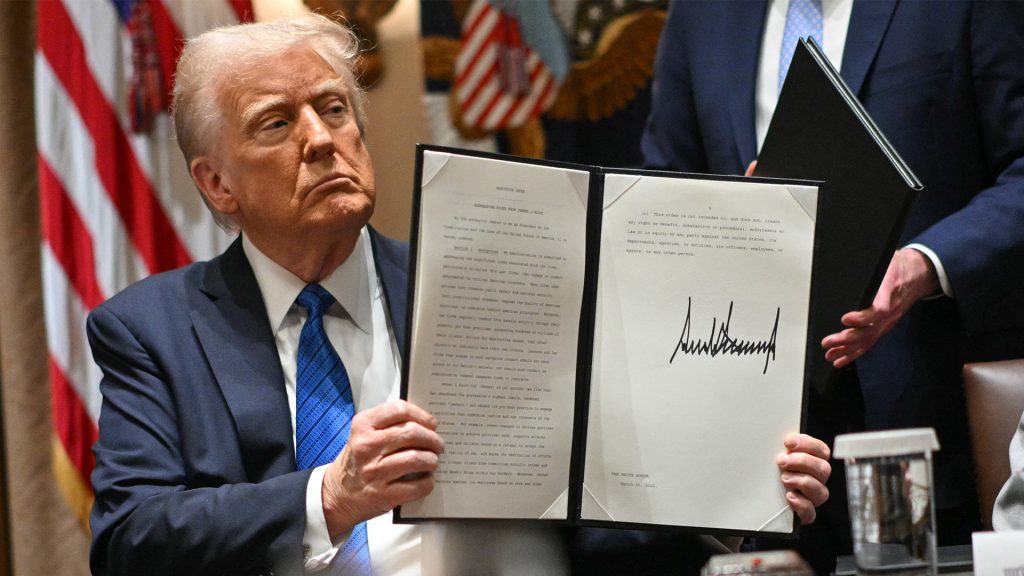Trump signs executive order on national elections
Ella Greene March 26, 2025 0
- President Trump signed an executive order on national elections. The order requires proof of citizenship for voter registration, limits the counting of mail-in ballots to those received by Election Day and prioritizes laws against non-citizens voting. It also mandates a review of voter registration lists against federal immigration databases.
- Critics including the ACLU, which plans to challenge the order in court, argue it could disenfranchise certain communities, while the Heritage Foundation supports the action.
- States not cooperating in election crime investigations could lose federal funding.
Full Story
President Donald Trump signed an executive order Tuesday, March 25, concerning national elections in the United States. The order includes several key provisions:
- Government-issued proof of citizenship for voters who register to vote in national elections. Currently, not all states require proof of citizenship for voter registration. Accepted forms of identification include a passport, a Real ID, military ID, or a state or federally issued form of ID showing proof of citizenship.
- States must count ballots received on Election Day, barring states from counting mail-in ballots received after Election Day.
- The attorney general must prioritize laws restricting non-citizens from registering to vote or voting and work with state attorneys general to prosecute those who violate these laws.
- The Department of Homeland Security and the Department of Government Efficiency will review each state’s public voter registration list and compare it alongside federal immigration databases.
Critics of the order argue that it could disenfranchise millions of voters, including the roughly 21.3 million Americans who do not have easily accessible proof of citizenship, as noted in a 2023 Brennan Center for Justice report. Similarly, married women who have changed their name but failed to update their identification could face problems.
Sophia Lin Lakin, director of the ACLU’s Voting Rights Project, released a statement saying, in part, “This measure will no doubt disproportionately impact historically-excluded communities, including voters of color, naturalized citizens, people with disabilities, and the elderly, by pushing unnecessary barriers to the fundamental right to vote.”
Meanwhile, The Heritage Foundation, a conservative think tank, also reacted to Trump’s new executive order.
“President Trump is finally taking the action long needed to put the resources of federal agencies like the Departments of Homeland Security and Justice to work helping states, instead of trying to hinder their efforts to reform our election process,” said Hans von Spakovsky, senior legal fellow and manager of Heritage’s Election Law Reform Initiative.
According to the order, states that do not cooperate in investigations and prosecutions of election crimes may lose federal grants and funding.
The ACLU has indicated it plans to challenge the order in court.
Related Stories
Ella Rae Greene, Editor In Chief
Ella Greene
Ella and the staff at Clear Media Project (CMP) curate these articles.
Unless otherwise noted CMP does not write these articles.
The views, thoughts, and opinions expressed in the articles published on this blog belong solely to the original authors and do not necessarily reflect the views of the blog owner. The blog owner does not claim ownership of the content shared by contributors and is not responsible for any inaccuracies, errors, or omissions.
All rights and credits goes to its rightful owners. No Copyright Infringement is intended. If you believe any content infringes on your rights, please contact us for review and potential removal.




